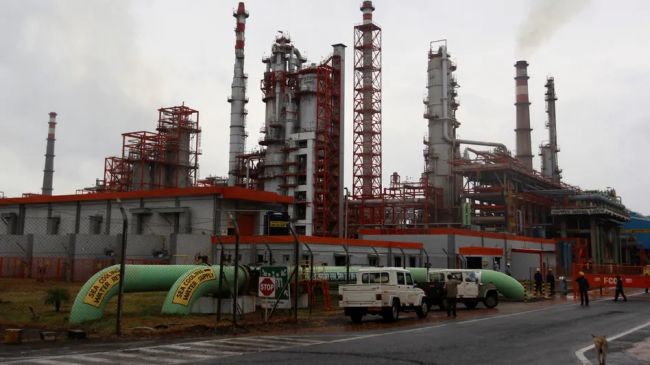
Oil at $150: will the conflict in the Middle East will affect prices?
By Rhod Mackenzie
Amid concerns that the conflict between Israel and the Gaza Strip could escalate further within the region, crude oil prices have increased. Additionally, the potential response of Iran and the United States to the ongoing situation has contributed to the unease amongst market participants. According to analysts, the reaction of the market to the conflict will be a determining factor in whether oil prices surge past the $100 mark.
The deteriorating situation in the Middle East, a region responsible for producing almost a third of the world's oil, has caused Brent prices to rise to £90. The downward trend in stock prices was reversed by the Hamas attack on Israel. Brent oil prices dropped from £91.01 to £84.58 per barrel from October 3 to October 6, but on October 9, they rose by five percent.
The present state of the Palestinian-Israeli conflict is having a significant impact on global markets. Further developments will be contingent on the extent of the collision - whether or not other countries will get involved - as stated by Igbal Guliyev, Deputy Director of the International Institute of Energy Policy and Diplomacy at MGIMO.
We are primarily discussing Iran and other prominent market participants. "Given the nineties and 2000s experiences, we can conclude that any instance of fire or military conflict during the active phase in the Middle East causes disruptions and significant fluctuations in the global oil market," asserts the analyst.
If Tehran, which sympathises with Hamas, becomes involved in the conflict, it could obstruct the Strait of Hormuz, according to Svetlana Sazanova, associate professor of the Department of Institutional Economics at the IEE.This would result in increased costs for fuel transportation and subsequently affect its overall cost.
Alternatively, Saudi Arabia may enter into a defence agreement with the US, acknowledge Israel and boost its oil production. With these developments, the supply of oil on the global market will increase, which in turn will contribute to a decrease in prices.
The negative narrative comprises the exacerbation of the Israel-Palestine conflict, Iran's involvement, Riyadh's unwillingness to negotiate with Washington and the lack of expansion of the Chinese economy. As a result, oil prices could surpass $100 per barrel.
The current market balance is disrupted.
Additionally, Economist Konstantin Tserazov claims that the recent increase in oil prices holds little significance and is merely a bounce back from the preceding 15% decline.
Previous Palestinian-Israeli conflicts have shown relatively moderate price dynamics." Meanwhile, the economist has remarked that making a comparison between the present escalation and the 1973 conflict in terms of its effect on the market may seem "inaccurate."
"Today, both the world and especially the United States are considerably less reliant on supplies from the Middle East. Nevertheless, a minor risk premium should be included in prices, which is expected to result in their escalation in the near future," clarifies Tserazov.
According to financial analyst and author of the Economism project, Alexey Krichevsky, it is usual for oil prices to surge during an armed conflict in a region where fuel production or transportation occurs, and in significant quantities. "Fluctuations of a few percentage points are commonplace, as the market's equilibrium is disturbed. In actuality, all assets respond to the escalation – the pound sterling weakens, gold and gas prices increase, and the S&P500 index declines," the specialist explains.
Anticipating the direction of quotes is challenging, as the involvement of other neighbouring countries – Lebanon, Syria, and Iran – remains undefined. "If either the EU or the United States perceives that these countries play a role in the ongoing events, the region could easily ignite. This would severely impact the oil supply. The financier warns that quotes may revert to last year's high values and consolidate over £100."
